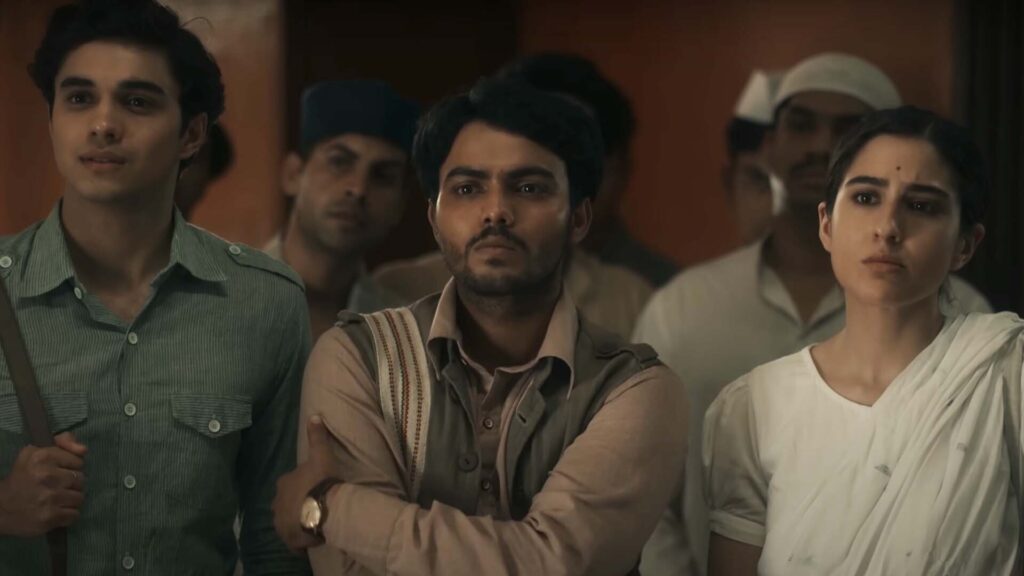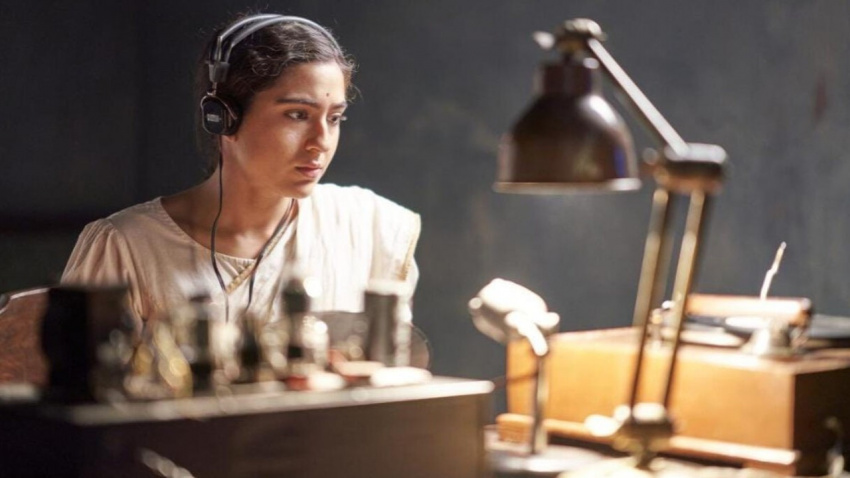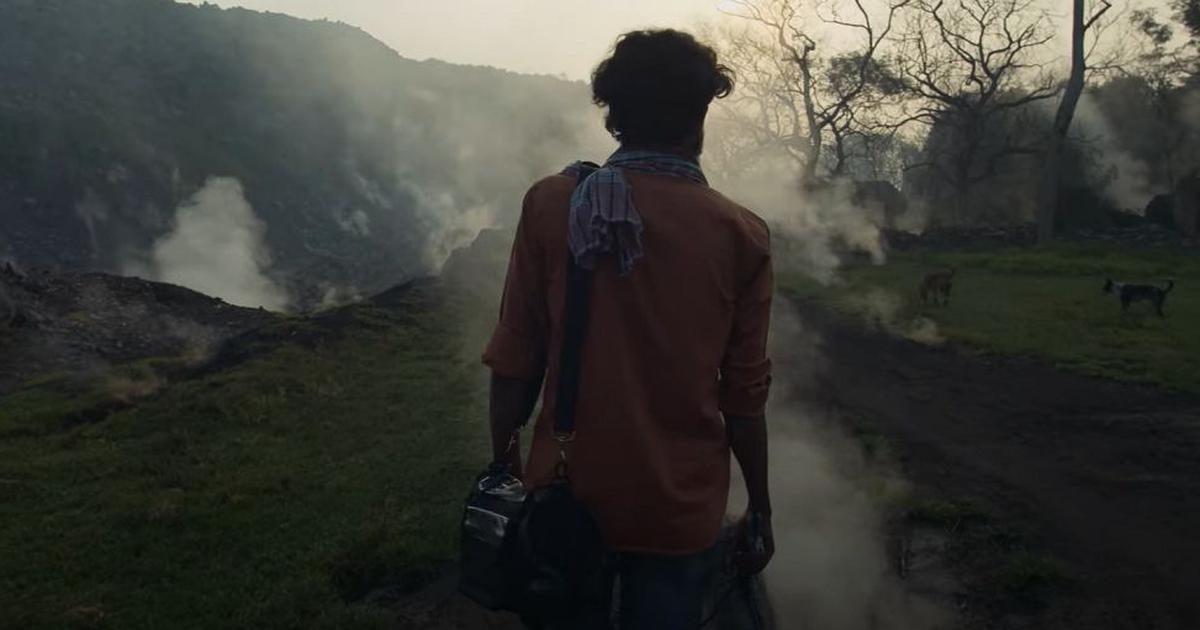Kannan Iyer‘s sophomore, Ae Watan Mere Watan, currently streaming on Prime Video, narrates the tale of a courageous young girl in pre-independent India when the British government controlled all the newspapers and private radio stations. It was done with the sole intention of manipulating the perceptions of the Indians to suit their cruel and deceptive agenda. Most of the freedom fighters and political leaders were in jail. Those who were not arrested went underground. The situation was both intimidating and dangerous, and the government has partially curbed the freedom movement. In response to this despot approach, the protagonist and her friends embark on a bold endeavor. They aim to inspire and unite fellow Indians in their struggle against the empire and liberate the nation from the fetters of slavery. While the premise holds promise, the film serves as another example where a potential concept doesn’t always ensure an equally engaging output. Filmmaking is a complex craft, and Iyer’s directorial skills are challenged by the numerous obstacles in translating his ideas from script to screen.
The film is set in the tumultuous phase of 1942 when the ominous cloud of a second world war worried the British Empire. Mahatma Gandhi launched the Quit India Moment, and the slogan Do or Die has filled the air. Usha Mehta (Sara Ali Khan) is a member of the Congress party and participates in political rallies with her college friends Kaushik (Abhay Verma) and Fahad (Sparsh Shrivastav). Her father, Judge Hariprasad Mehta (Sachin Khedekar), is an admirer of Winston Churchill and there is always a tussle between the father and the daughter. One day, while collecting Congress news bulletins from a clandestine printing press, Usha and her friends encounter an engineer and music composer who knows how to build a radio station. Soon, Mahatma Gandhi and other leaders are arrested, and the revolutionary zeal within the nation comes to an abrupt halt. Usha, Fahad, and Kaushik decide to launch the radio station Congress Radio with help from Firdaus. The station’s purpose is to broadcast revolutionary speeches every night at half-past eight using records of political leaders kept in the party’s library. Soon, the station is heard by people from various corners of the country, and the British government is unable to detect its location. Eventually, Hariprasad learns about his daughter’s rebellious endeavour, and after a bitter confrontation, Usha leaves her home for good. At an underground meeting, Usha meets Ram Manohar Lohia (Emraan Hashmi) and informs him that, along with her friends, she runs Congress Radio. Impressed, Lohia uses the station to propagate his political messages to the nation. But as the net tightens around the government, Inspector John Lyre (Alexx O’Nell) from the crime branch is then assigned the job of apprehending the individuals running the radio station.

Ae Watan Mere Watan begins with a dramatic scene where John and his force raid the Sunshine building where Usha has set up the radio station. It ends with a police officer drawing his revolver at Usha, and then the title appears. Although the filmmaker intended the scene to function as a cold opening to capture our attention, it lacks the tension and intrigue to captivate us. Usha’s narrow escapes from the vigilant eye of Lyre lack the required tension. For the rest of its hundred and thirty-three minutes, the film remains strictly adhered to a lacklustre approach to storytelling. The emotional anchorage or tension that was supposed to arise from a film based on such themes is entirely missing. Each dramatic arc in the film feels rushed and fails to evoke genuine emotions for the characters. For instance, Usha and Kaushik are in a romantic relationship. They attend their first public meeting of Gandhi (Uday Chandra) together and enamoured by the great leader’s speech, Usha takes her vow to celibacy in a jiffy. The scene required a build-up so that we could empathize with the situation that she had put Kaushik into. But it is constructed in such a way that the motive behind incorporating the scene functions only to provide a piece of key information in the life of the protagonist. Another scene, where Usha asks Lohia if they are moving away from the truth of Gandhi’s non-violence, is loaded with gravitas coming from a young woman yet to understand the complex world of politics. But again, how the scene has been executed with montages of people around the country preparing them for the revolt loses its impact. Similarly, when Usha and Fahad get into the tussle about who is going to broadcast the final recordings of Lohia, fall short of the raw emotions where the bonds of friendship and sacrifice are tested to their limits. Moreover, the treatment of the film resembles a soap opera. It teeters on sentimentality and exaggeration, serving as a miscalculated narrative device to maintain our engagement. Scenes such as Usha tearfully telling her father that his love for her is akin to shackles, Hariprasad reading Usha’s letter after she has left home, or the excessive repetition of the slogan Do or Die hints at potential over-dramatization. The montage depicting the uprising and its subsequent suppression towards the end seems redundant and flounders to elicit sympathy for those involved. Similarly, the climax of the film falls short of the desired effect.

For portraying Sara Ali Khan in the role of Usha Mehta, much emphasis is given to her makeup and apparel. Her dialogues feel constrained and it gives the impression that she is too conscious rather than harmonious in delivering the lines. Emraan Hashmi with conviction plays Ram Manohar Lohia. In his introduction scene addressing a group of young underground Congress workers, he captures the indomitable spirit of a historic figure with grace. Given the screentime offered to his character, it makes one wonder why he is credited with a special appearance. Sachin Khedekar, as Hariprasad Mehta, truthfully emulates the role of an individual caught between his loyalty towards the British and his love for his daughter. Sparsh Shrivastav, as Fahad, crippled due to polio, brings a smouldering touch to his character and performs the role of the revolutionary with consummate ease. The character of Firdaus Engineer, played by Anand Tiwari, is reduced to an individual who is more engrossed in music and dance rather than exhibiting technical expertise. Alexx O’Nell, as John Lyre, looks more like a villain from a Bond film and appears like a cliched character. However, all the characters lack depth and miss capturing the complexities of human relationships due to shortcomings in the screenplay co-written by Iyer and Darab Farooqui.
The cinematography by Amalendu Chaudhary establishes the period of the film eloquently. However, the framing of the characters generates a feeling of watching a television show. Similarly, the production design of Amrita Mahal Nakai and Sabrina Singh is also not up to the mark. Due to the weak script, even the editing by Sangeeth Varghese struggles to engage us. The background score by Utkarsh Umesh Dhotekar is not at all rousing and the songs are forgettable.
Ae Watan Mere Watan invokes the feeling that when the government becomes a tyrant and controls the news media, it is imperative to revolt. The reason should not only be victory but also the mere fact that they are a tyrant. It further shows how people from various religious groups have fought unitedly for the freedom of India. However, the most important aspect of the film remains that it has highlighted the life and times of Padma Vibhusan winning freedom fighter, Usha Mehta, whose sacrifices are not known to the majority of Indians. The intentions of the makers of the film are undoubtedly honest, and a short documentary on the subject would have served their purpose. Because of how the film has been shaped, it is not memorable at all, and that undermines all the efforts of the individuals who have contributed to its making.



